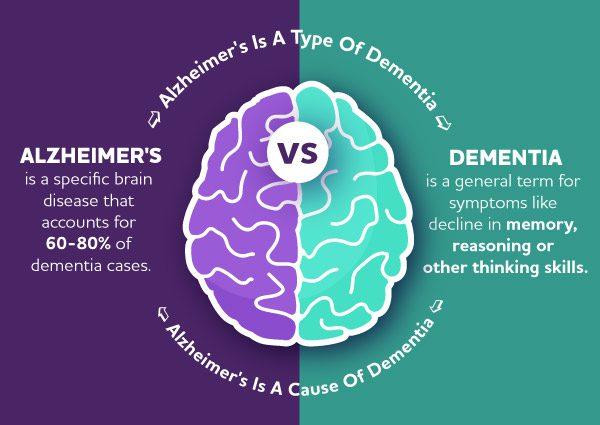What is the Difference between Dementia and Alzheimer’s
Dementia is a general term for a decline in mental ability severe enough to interfere with daily life. Alzheimer’s is the most common cause of dementia. Alzheimer’s is a specific disease. Dementia is not.
Learning about the two terms and the difference between them is important and can empower individuals living with Alzheimer’s or another dementia, their families and their caregivers with necessary knowledge.


